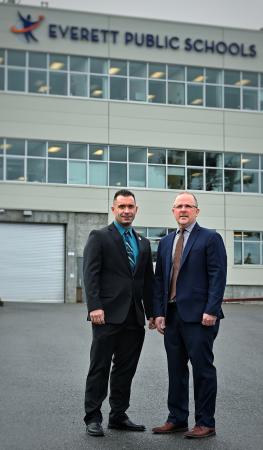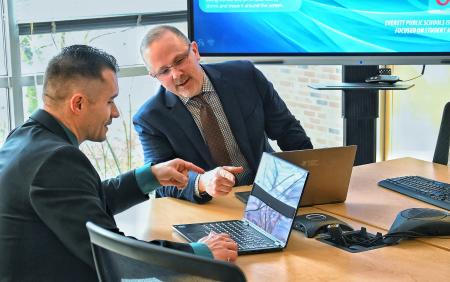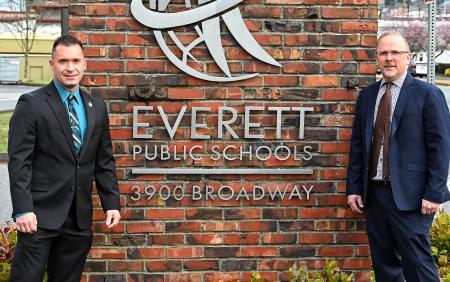CISA Partners with State’s K-12 Schools Fighting Cyberattacks to Keep Kids Learning

Washington State Cybersecurity Coordinator Ian Moore fondly recalls his days playing defense for the Cascade High School football team in Everett, WA, north of Seattle. Fast forward three decades and Moore now finds himself still helping his school with his defensive expertise, but this time a little more is at stake than preventing a touchdown.
Now, Moore is helping his alma mater protect against cyberattacks as a member of the Region 10 CISA team, whose job it is to work with regional critical infrastructure partners to secure their networks and build resilience to outside cyber intrusions.
Moore’s work, and that of scores of other cybersecurity advisors across the nation, is now focusing on our schools – considered to be a significant target of malicious cyber intruders.
Schools and districts are particularly exposed to cyberattacks and are an especially lucrative and vulnerable target given the presence of sensitive student and staff data. Impacts from cyberattacks have ranged from restricted access to networks and data, delayed exams, canceled school days, and unauthorized access to personal information.

Additionally, the relationship Americans have with the schools their children attend changed dramatically over the last few years. Now, parents and students alike are interacting with schools and teachers online in a variety of new ways, from online grading and information on class assignments, to instructor communication, paying lunch balances, and scheduling classes.
CISA recognizes that many K-12 entities don’t often have the resources needed to defend themselves from cyber threats, like ransomware attacks. Cybersecurity advisors like Moore are there to help and more and more districts are relying on that help to shore up their network defenses.
“Any data breach or outage results in student learning loss and we can’t afford that,” said Everett School District Chief Information Officer, Brian Beckley. “Since working with CISA the bar has been raised when it comes to managing our systems in a more secure manner.”
Beckley said CISA’s services from alerts of possible attacks to scanning their networks looking for vulnerabilities has resulted in improved security, but he added it’s an ongoing challenge.
“We take our security very seriously and work on it day and night,” Beckley said. “We’re glad to have a partner like CISA at our side.”

The Everett School district isn’t alone. Other districts, like the Northshore School District in Western Washington, have also benefitted from working with CISA to strengthen their cyber defenses. While many districts have the knowledge of what it takes to secure their networks, oftentimes, there are not the resources in place to fund the necessary defenses against cyberattacks.
The free CISA Cyber Hygiene vulnerability scanning service is one that has proven to be invaluable to the district, according to Alexander Delgadillo, Network Security Engineer for Northshore School District.
“We have resolved several issues that were direct findings from the CISA services,” Delgadillo said. “Having access to a quality service has been incredibly helpful for improving our security posture, and this is one resource that would add so much benefit for other districts at no cost.”
Wahkiakum School District Superintendent Brent Freeman echoed those thoughts. His district typifies the phrase, target rich-cyber poor as being one of the poorest districts in the state with funding challenges at every level. For Freeman, cybersecurity is a must, but there’s simply no funds to adequately protect the schools there.
Moore recently led a training session for teachers and administrators focused on protection against a cyberattack given their current situation - limited infrastructure, an IT staff of one, and a nearly non-existent budget. He zeroed in on such safety measures as creating complex passwords, backing up information to the cloud, being cautious of email attachments, and sharing ransomware response procedures.
“It was really great for CISA to come in and tell us what we were doing right and where we needed improvements,” Freeman said. “Having the CISA visit was perfect.”
For Moore, helping schools is an important part of his work, considering all that’s at stake. But one district in particular has a special place in Moore’s heart – Everett Public Schools.
“They spent all this effort educating me from the sixth grade on and when I graduated I left the area, traveled the world and now I’m back, thirty years later,” Moore said. “Being able to give back and support them is the best feeling and the greatest value I can take from this work because I have some skin in the game.”
